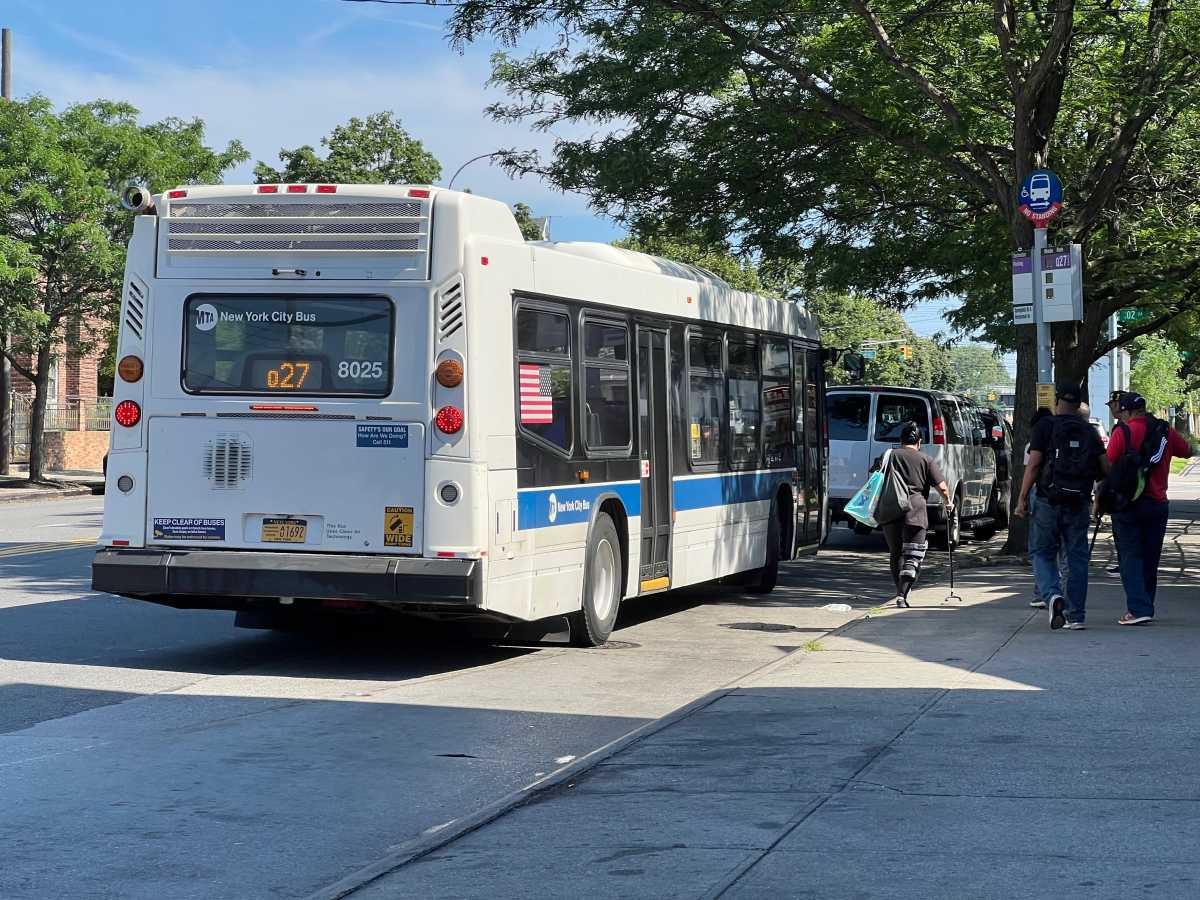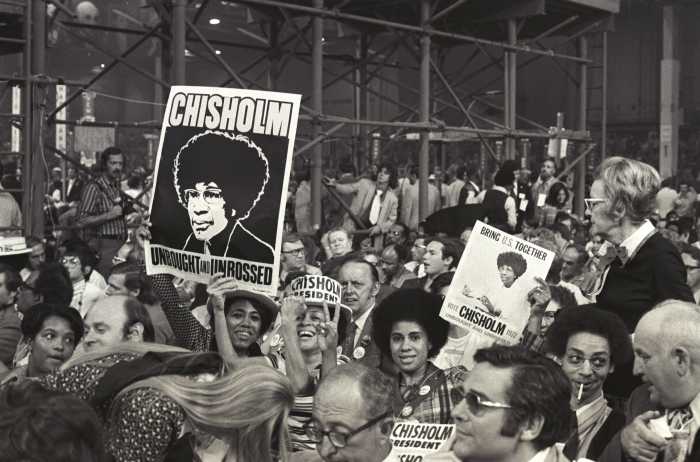
BY MINERVA DURHAM | Mid-October 1978, Virginia saw someone moving furniture out of 86 Kenmare, around the corner from her loft at Spring and Lafayette.
She told me to go over right away, there might be an apartment available. It was one of the larger buildings in Little Italy, with 30 units. There was a restaurant/bar downstairs named Patrissy’s.
I asked the bartender in Patrissyʼs if there was an apartment for rent. He called out, “Danny,” and the owner came over to me. A nice Italian-American businessman in a suit, well-fed and contented, Danny Patrissy greeted me.
“I am looking for an apartment for me and my teenage daughter,” I pleaded. “I like this neighborhood and I work as a proofreader on 19th Street.”
“Someone just moved out of 25,” he said. “Iʼm curious to see it myself, Letʼs go up and look at it.”
We started climbing the stairs to the sixth floor. Danny had to rest halfway up to catch his breath. Relieved that climbing stairs was an effort for him, I felt safe. If he turned out to be a maniac, I could get away.
On the top floor, he used a set of keys to open a heavy metal door labeled “25.”
The first room was a decent size. It was the kitchen, drab, with a small stove and refrigerator near the door. The first thing that you saw when you walked in was a rusted metal shower and a small, low sink. The apartment was a converted cold-water flat with hot running water now, a toilet in a small closet next to the kitchen sink, and one large radiator, tilting as though it might fall over at any minute.
The floors sloped in and down from all sides. The kitchen had no charm except for the good-sized window between the radiator and the toilet door.
A doorway without a door, but still having a transom window above the place where a door once was, led to two very small rooms, each with a window.
“Horrible, horrible,” I thought to myself.
“What do you think?” Danny asked me.
I lied.
“I like it. Itʼs perfect for my daughter and me. Can we rent it?”
“How much will you pay?” he asked.
Knowing that my friends were paying less than $100 for places better than this one, and knowing that there were (and still are) laws controlling the rents in this area, I stabbed at an amount: “$200.”
He was not pleased. He scoffed, “You know I could get $300 for this place easily.”
“Of course you could,” I shot back. “How about $250?”
“O.K. The sink is pretty bad, so I will give you a new sink. Here are the keys. Take them to my agent around the corner and tell him that Danny is renting apartment 25 to you.”
“And some paint for the walls?” I asked.
“Yes, I will pay for paint. You buy it and bring me the bill.”
Downstairs and outside, Danny told me to cross the street and to go to a building displaying large letters. He pronounced the name. It sounded to me like “Pisa Caro.” I tried to memorize the name. Thinking that “Pisa Caro” might mean “Dear Caro” in English, I chanted to myself, “Pisa Caro. Pisa Dear. Pisa Caro. Dear Pisa,” while looking for the building.
As we parted, we shook hands. It was something new for me, making a deal with a handshake. Danny was the ultimate generous padrone to be trusted, I thought, even if he was breaking the rent-stabilization laws. Thanks to his sense of magnanimity, Teva and I would finally have a home. At last we could leave Mariannʼs loft on Ludlow Street.
I walked across Petrosino Square, which was at that time named Kenmare Square. I looked up and saw “P. Zaccaro” in huge letters across the top of 218 Lafayette St. I walked in the front door and up steps to the second floor.
“Danny sent me,” I first told a secretary, and then, escorted by her to the front office, I greeted an old man who sat behind an imposingly large desk that took up most of the space in his office.
“Danny sent me. He said that I can rent Apartment 25 at 86 Kenmare.”
The old man was Max Isaacs.
“You canʼt rent that apartment. We have someone waiting for it,” he said.
The next moment was divine and memorable, my great triumph of logic and luck. I held the keys up next to my face, jiggling them ever so gently. And I said, “Danny gave me the keys.”
Mr. Isaacs never liked me after that, so it was a costly victory.
Just then the phone rang.
“Hello,” Mr. Isaacs said. “Yes, sir.” A pause. “Yes, sir. Yes, I will.” Another pause. “Two hundred fifty a month. Yes, sir, I will prepare a lease.”
Suppressing anger he looked at me and said, “Write your name on this piece of paper. Come back in half an hour and I will have a lease ready for you to sign.”
Later I sat in a chair next to a desk in the center room at the P. Zaccaro office and looked over the lease that Mr. Isaacs had prepared for me. I began to write my name on the line next to the “X,” when a tall, thin man came out of a back office. Wearing a tie and white shirt with the sleeves rolled up, and holding papers in one arm, he leaned over me menacingly.
“I wouldnʼt sign that lease if I were you,” he said. “There will never be any repairs done in that apartment.”
I looked him fiercely in the eye.
“Do you do the repairs?” I asked him. He backed off a little.
“No,” he answered. I learned later that he was John Zaccaro, son of the founder, P. Zaccaro,
“Then I will take my chances,” I said.
That night Teva and I carried our duffel bags and suitcases to our new, if drab, apartment and slept on the floor using our clothes to cushion us and to keep us warm.
Our six-week stay at Mariannʼs loft had been difficult. She was renting almost 4,000 square feet of open floor space on Ludlow Street in a two-story building. She had cluttered the space with old furniture and junk from the street. There was a collection of about 30 broken umbrellas that she planned to “do something with” someday but never did, chairs, cabinets, broken bicycles. And, oh, two large unruly dogs, one of which would chew up worn underwear if he could get to it. So we had to be careful as we undressed not to allow any piece of clothing to fall on the floor, and then we had to stash our clothes in as high a spot as we could find. Even then, the dog sometimes would manage to snatch someoneʼs underpants and rip them to shreds.
In the back quadrant of the open space, Mariann had built out a room of a thousand square feet for her twelve cats. Twice a day one of us would enter the room and feed the cats and empty the litter boxes.
Mariann would walk the dogs most of the time because they were hostile toward people on the street and difficult to control.
When she first rented the “raw” loft above a hardware store, she installed a tub, sink and toilet, all of which functioned well. Then she put up studs for drywall to enclose the bathroom space, but there was no drywall up yet when Teva and I moved in, so we all had to avert our eyes whenever anyone used the bathroom or bathed.
Before September 1978, when we arrived to stay with Mariann while I looked for an apartment, she had agreed to go out with Paul, an artist who lived in the neighborhood. It was to be their first date. She was running late, so she still needed to bathe before going out with him. When he arrived, she told him to wait for her in the front of the loft while she got ready. She turned the water on to fill up the tub and undressed in the transparent bathroom. As she stepped into the tub of hot water, she saw Paul in her peripheral vision just outside the bathroom undressing. He joined her and they had sex. I didnʼt hear the details.





































